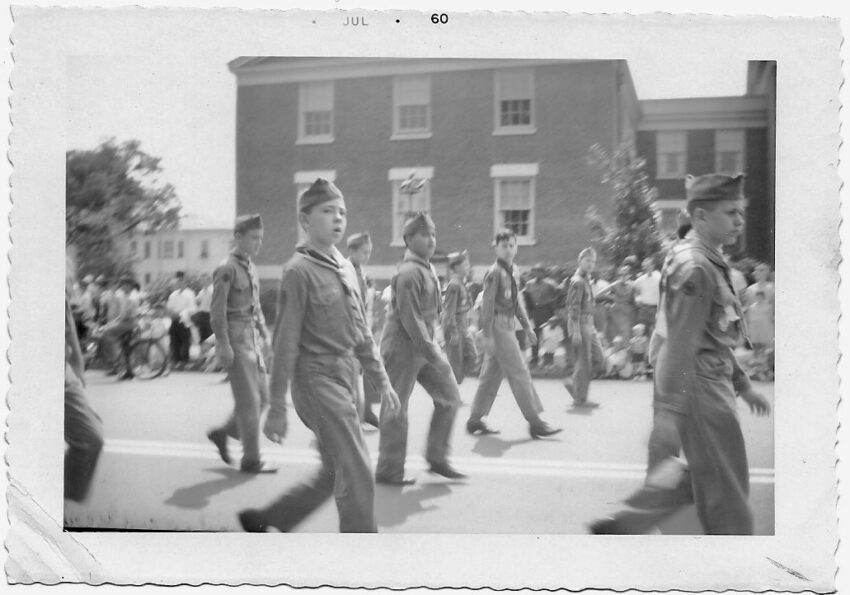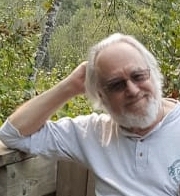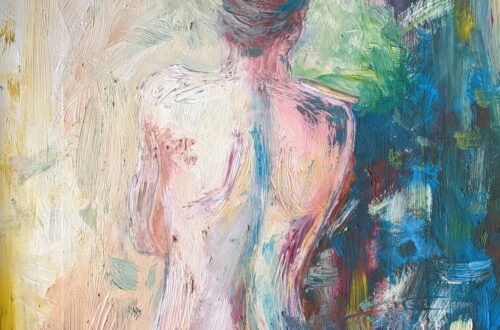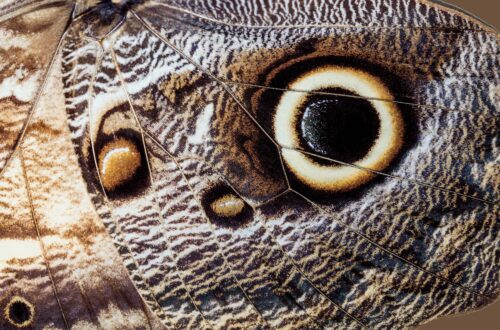
Parade
by Tad Tuleja
I do not often see the faces of the dead. But sometimes, in a lucid dream, they tug at my memory, reminding me of what I have gained and what I have lost. In the hour of the wolf one October morning, the chill just whisking down from Alberta to Texas, I am half awake in the darkness and watching a parade.
I am five or six years old and sitting on the curb, just near the spot where Livingston Avenue runs into George Street. The parades come down Livingston from the high school, then turn left into George, the town’s main street, where my Uncle Jim worked for thirty years in Young’s department store and where in the 1950s, for a quarter, you could buy a bag of twenty plastic soldiers in the five and dime. My father and I have captured a spot just past the turn, so I can see the grills of the cars as they come down the avenue and then catch the flanks of the floats as they turn into George.
With the mayor leading the parade are the veterans of three wars—my father’s, Commander Thomas Keane’s, and the police action in Korea, which is still going on. One old soldier in front is carrying a forty-eight-star flag. Behind them is a high school band, twirlers in sequined skirts and white boots, and khakied teens from a Boy Scout troop I am too young to join. As the column turns into George, my father reaches down his hand. I take it and get up and we are silent as the flag passes by, our hands on our hearts.
On the first float my godfather Paul Faraci is frozen in a moment of contorted finality, like the soldier hit by a Fascist bullet in Robert Capa’s famous photograph of the Spanish Civil War. But Paul is not in pain and he catches my eye. He beckons me to join him, the figlioccio he has never seen. I look to my father, his comrade, but he will not let me go.
On the second float are three boys from Bound Brook High School, boys who went to Vietnam and did not come back. In waking life I did not know them, but one of them, a boy named Tony Prizgintas, was on the wrestling team, as I was, and might have been in the audience that day when Commander Keane, at my bidding, brought my schoolmates to patriotic tears. I wonder if he went to war because of me. Tony beckons, too, and I want to join him, to walk toward the gray fires and play at soldiering. But my father keeps my hand and will not let me go.
On the third float, children my age are sitting in a sandbox. They are playing Hot Potato with a small round object which might be a ball or a rock or a grenade. I want to join that circle too, but my father’s hand holds mine like a nest holds a bird. There is Sousa in the air, the blare of trumpets, as he bends down and whispers in my ear.
“Only the dead have seen the end of war.”
There is one more float. My mother is standing on it, with her swaddled newborn, listening to a tall, gaunt figure in top hat and tails. He is someone I know or knew or thought I knew, and he is speaking with extravagant gestures. I strain to hear his voice, but it is not a voice. From his mouth come not words or even sounds, but a stream of small black birds, seeking the sun, casting shade over George Street and then the town and then the entire country.
“Man is mad,” says my father. I say “What?” and he says it again.
“Man is mad.”
And then, as happens in dreams, there’s a change of scene. I am no longer a toddler, no longer on the curb. I have joined the parade myself behind the speechmaker’s float, as a member of a fife and drum band in Civil War costume. We are in Massachusetts, cradle of liberty. I am wearing the ill-fitting wool of a Union private. It is Memorial Day sometime in the 1990s, and I have joined a reenactment unit at the last moment. The guy who plays the bass drum has fallen ill, and I agree to take his place.
I do this pretty well, past Young’s and the five-and-dime, until the monotony gets to me and I get creative. As the fifes play “John Brown’s Body,” I’m trying out offbeats on 2 and 4, throwing in triplets, and I’m feeling pleased with myself until the tune ends and the commander of our unit walks over to me. He’s a spit and polish type, primly rigid, wearing shiny boots and a hat with a plume.
“Don’t get fancy,” he says. “Just beat the drum.”
So I beat the drum. Plain not fancy. I beat it 1-3, 1-3, 1-3, and the troop moves forward, the fifes doing “When Johnny Comes Marching Home Again,” and I am part of the long blue line as the parade moves on.
Only in my head is another song. You can sing it along with “Johnny” and it harmonizes pretty well. It started around 2000 as a song about my father—his subchasing duty in the North Atlantic—but over the years it acquired other verses, verses about Vietnam and our sandbox wars, and it came to be, for me, the song I would sing if I only had one shot and somebody told me, “Tell us something true.” It’s called “Lines in the Sand.” The lyrics of the final verse go like this:
From the bloody sand of Caesar’s town to the picnics at Bull Run
The gentry cheer the spectacle when Johnny gets his gun
In alleys paved with promises and hearts made out of steel
Elders write the contracts and children close the deal
So here’s to kids on crutches with their medals hanging down
And memories of fearsome nights in someone else’s town
Let’s burn the midnight candle and have another song
And raise a glass in sadness to our buddies who are gone
I sing this song now for Paul and Tony and for the millions of sandbox jugglers not yet born who will one day shoulder arms and walk to a drumbeat that is set by men far away in top hats and tails.
For this is how it goes, from Homer onward. The woman brings the child into the home. The man, stalwart and beribboned, guards the door. Next to him, knee-high, stands a boy. A small copy of the man, his eyes turned upward, he waits for a smile of approval: “Yes, that’s good, Skipper.” He thinks he is waving to his father, but he is raising a visor. It opens into a tale of blood and glory that was old when Achilles dragged Hector’s body around doomed Troy.
Generation on generation, he will stand just so, the toy soldier, the flyboy, the Little Admiral. His eyes fixed upon the man whose colors don’t run, he will stand obedient to a wordless command, learning the ways of honor in his small dress blues.
“Only the dead have seen the end of war.”

Tad Tuleja is a folklorist with interests in the Western, honor cultures, and the mythology of violence. He holds a Ph.D. in anthropology from the University of Texas, edited two anthologies on military culture for Utah State University Press, and has published essays on yellow ribbons, “The Ballad of the Green Berets,” and World War I trench songs. His essay “Spit and Spin: Rival Memory Narratives of Vietnam” was nominated for a Pushcart Prize by Consequence journal; other poems and prose have appeared in The Road Not Taken, Adirondack Review, Blue Unicorn, Every Day Fiction, and Military Experience and the Arts. Tuleja received a Puffin Foundation development grant for his song cycle “Skein of Arms.” Under the alias Skip Yarrow, he performs his songs on www.skipyarrow.com and on You Tube.




